Whether you’re new to raising sheep or you’ve been doing it for a while, there are always things you can do to improve their health – and one of the essentials is a proper diet.
Sheep are rather simple animals that mostly eat grass, forbs, legumes, and some other pasture plants.
Forbs are broad-leaf plants and a favorite of sheep.
At the same time, you can add certain supplements that will improve their diet, such as fruits.
It’s a great, healthy, and budget-friendly solution that brings great results – if you know the right way to approach it. Let’s check it together!
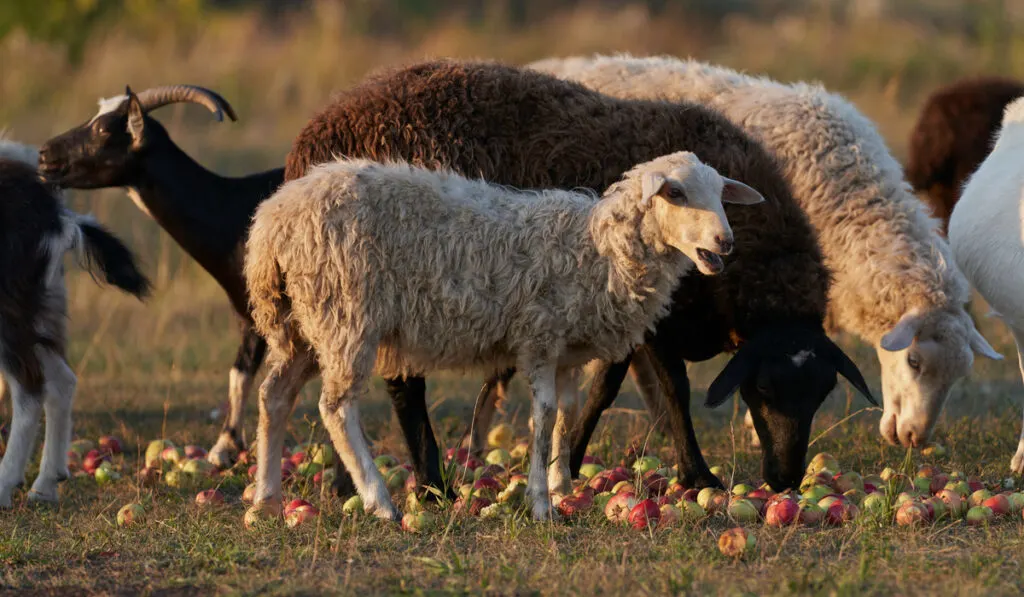
Table of Contents
Should Sheep Even Eat Fruits?
Sheep are ruminants which means they mostly eat grass but can handle various fruits and vegetables as well.
You can also enrich their diet with fruit peels since they come as an excellent source of antioxidants, potassium, fiber, and some other valuable nutrients.
Fruits are highly nutritious and come as a great supplement for livestock – it’s especially important over dry seasons when forage quality is not that good.
Farmers love adding fruits to sheep’s diet because it’s way cheaper and more available than a commercial feed full of additives.
Even though fruits are good and important part of their diet, you need to be careful; excess feeding can lead to certain health issues.
Fruit should be a treat moderately added to their everyday menu.
Generally speaking, lots of farm animals like sheep, goats, pigs, or cattle love fruit.
Still, their diet varies. For instance, goats will eat just about anything, while the sheep are a bit pickier about their food.
So, What Fruits Can Sheep Eat?
Apples
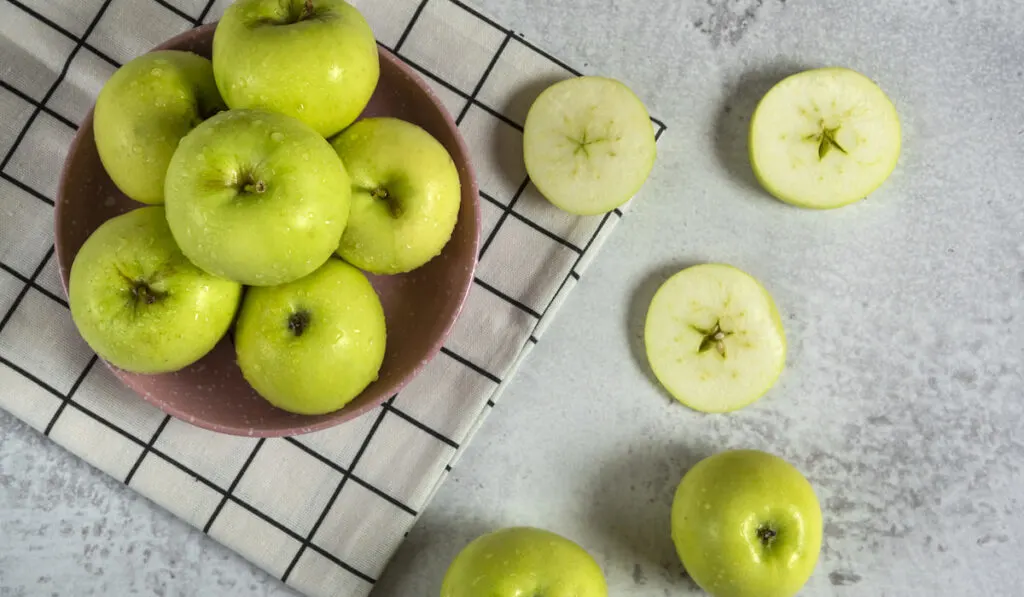
Apples are a rather good source of vitamins, minerals, potassium, and fiber – which is actually concentrated in the skin.
Fiber is an element that improves healthy bowel movements and digestion.
This fruit helps with balancing the pH levels in sheep’s stomach.
Don’t forget to remove the seeds since they tend to be poisonous for them.
When it comes to apples or similar supplements, it would be best to feed them in the middle of the day.
That way, you won’t affect their usual grazing patterns.
So, yes, apple slices are a pretty good treat you can add to your sheep’s diet.
Still, it’s not something they find or eat naturally, so you should gradually include it in their meals.
For instance, make apples be around 10-20% of their diet. Too many apples may cause painful digestive problems.
Banana
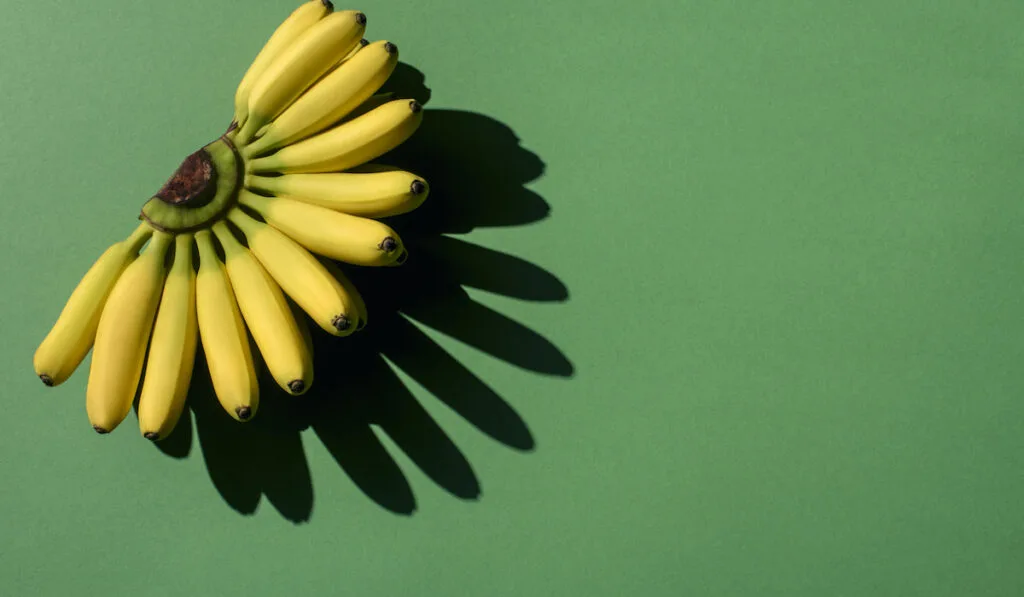
Banana is one of the most popular fruits and a great snack choice packed with potassium, fiber, vitamins, and various antioxidants.
It can improve digestive health, and can certainly become that neutral treat your sheep longs for.
If you have some leftovers or things you are not quite likely to eat (such as broccoli stems or something similar), add some banana peels and give it all to your sheep.
That way, you both reduce food waste and provide your sheep with a light tasty snack.
Even mountain sheep love banana skins and are likely to walk even several miles if it takes just to find them. So, a big YES to bananas.
Grapes
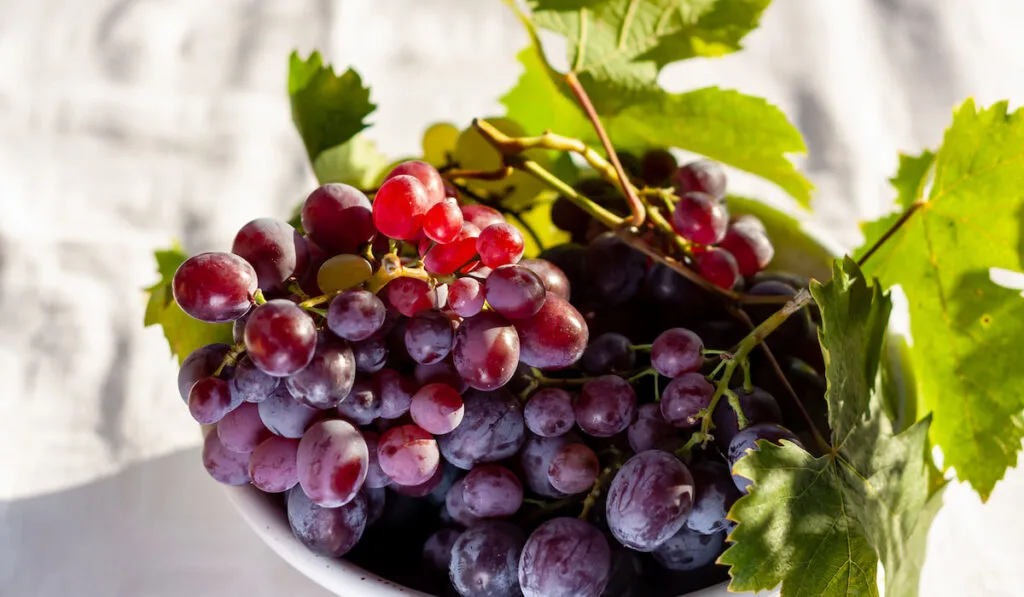
In New Zealand, people often tend to bring sheep into their vineyards.
They love eating grape leaves, which is why they can help with removing the leaves – an essential step in the process of growing grapes.
Of course, if you want to pick the fruits of your labor (hmm, or their labor), you won’t let them stay there for too long.
Grape is definitely one of the fruit types they are recommended to eat. It’s highly beneficial for their health, plus a super-tasty treat they will enjoy.
As with other fruits, add it gradually. Introduce it in smaller amounts, and wait for around 24 hours to see if there is going to be any reaction.
For the next two or three weeks, give them a handful of grapes once a week – after that, you can increase it to twice a week.
Pears
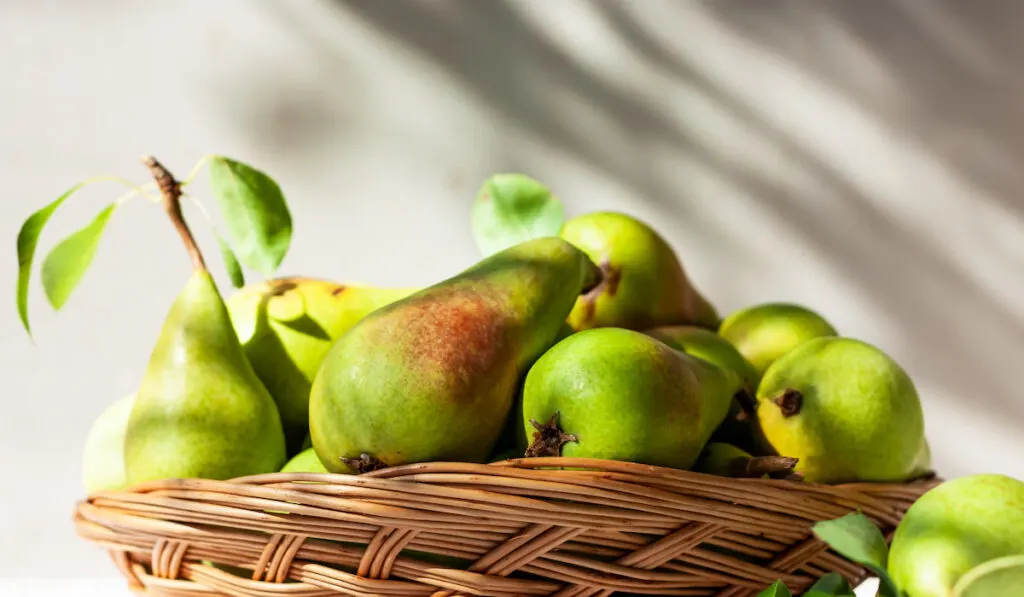
Pears are another light and rather neutral fruit that contain various vitamins, protein, potassium, and fiber.
It’s also one of the treats that can help sheep maintain their body functions and improve their health.
Pears, together with the rest of the fruits boost the immune system.
The same as the rest items from our list, add pears gradually to their diet so you could see if your flock is going to accept them well.
Oranges
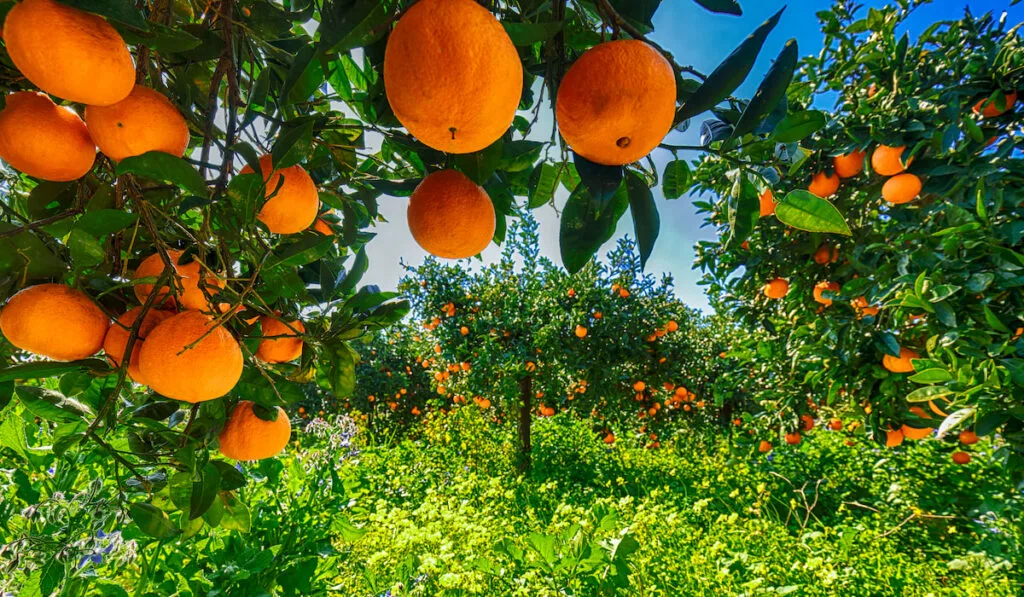
Oranges do have a specific taste, but they are packed with plenty of valuable vitamins and other nutrients important for good digestion and maintaining health.
Yet, as with other fruits or vegetables, avoid overfeeding. Highly nutritious treats such as these are definitely beneficial – but in the right amounts.
When a sheep eats too much of things that are not natural for it, it can cause digestive issues and even death.
Watermelon
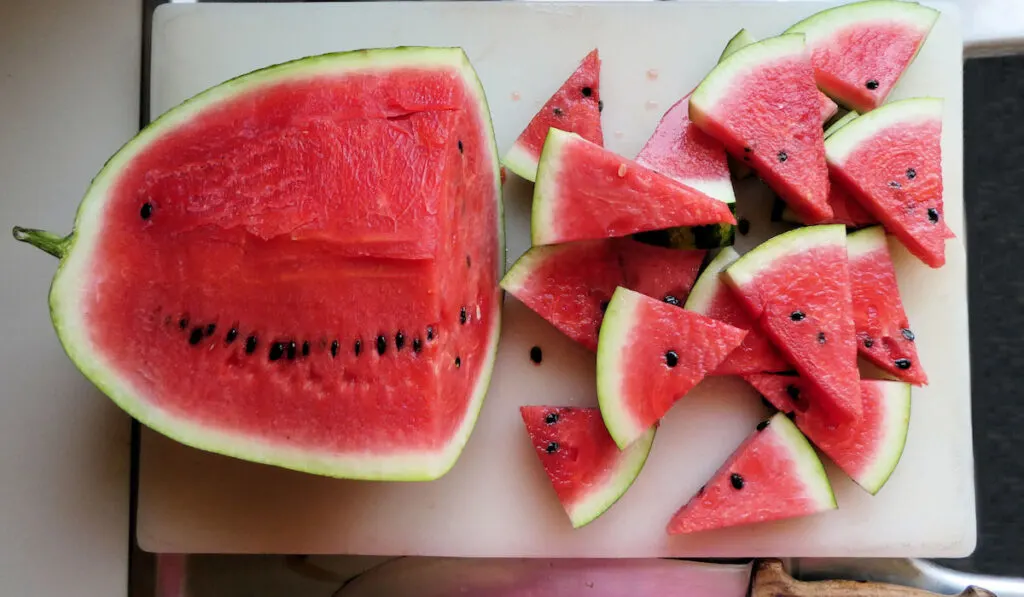
Sure, you can add a watermelon too, especially if you have some leftovers you couldn’t finish.
Watermelon is a great refreshing treat both for us and animals that are likely to eat it.
It’s packed with important nutrients, plus it hydrates our body during warmer days.
Their digestive system needs a balanced diet consisting of feed and forage – all extra “snacks” can be added in moderate amounts.
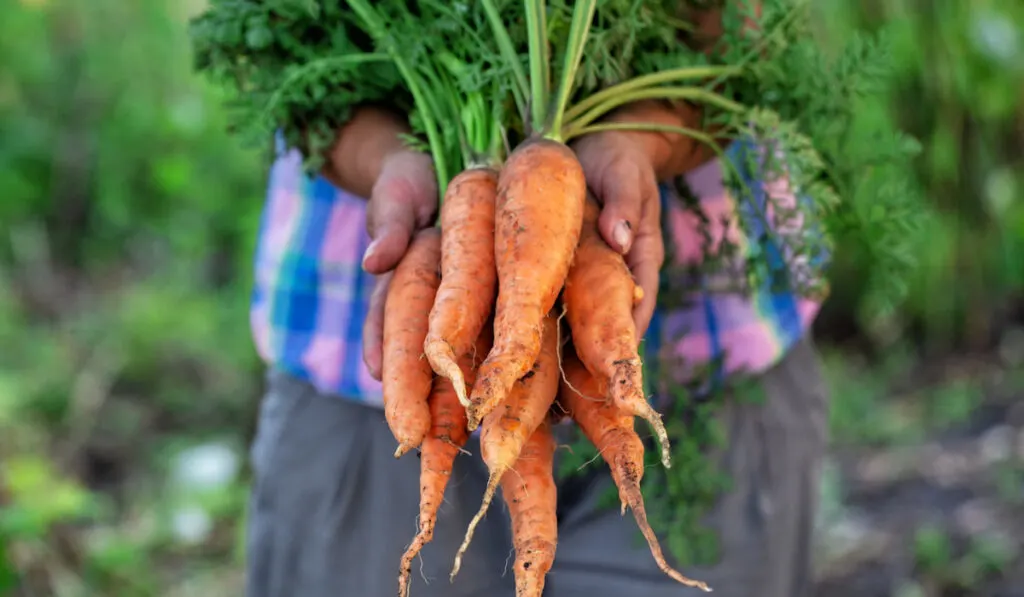
What About Vegetables And Garden Plants?
Similar to fruits, vegetables are also supposed to be an occasional treat that enriches their diet, and not something your sheep eats on a regular basis.
Some of the recommended types would be lettuce, pumpkins, celery, squashes…
What about carrots? They are also a nice supplement you can add to their menu.
Introduce it to your sheep slowly; first of all, give them only one or two smaller pieces to check if they handle it well.
They might not show any interest at first, but that’s normal and can happen with all new supplements.
You may also check this link for additional information.
As with fruits, wait for 24 hours to check for a reaction – if everything’s good, do it again the next day too.
What Things Should Sheep Avoid?
While there are fruits that are highly beneficial for their health, sheep should also avoid certain types such as avocado and cherries.
Potatoes, kale, and cabbage are veggies they should never eat.
In addition, some garden plants such as daffodils, azaleas, elderberry, holly, acorns or buttercups can be quite poisonous for sheep.
Make sure they don’t have access to garden areas where they can reach these plants.
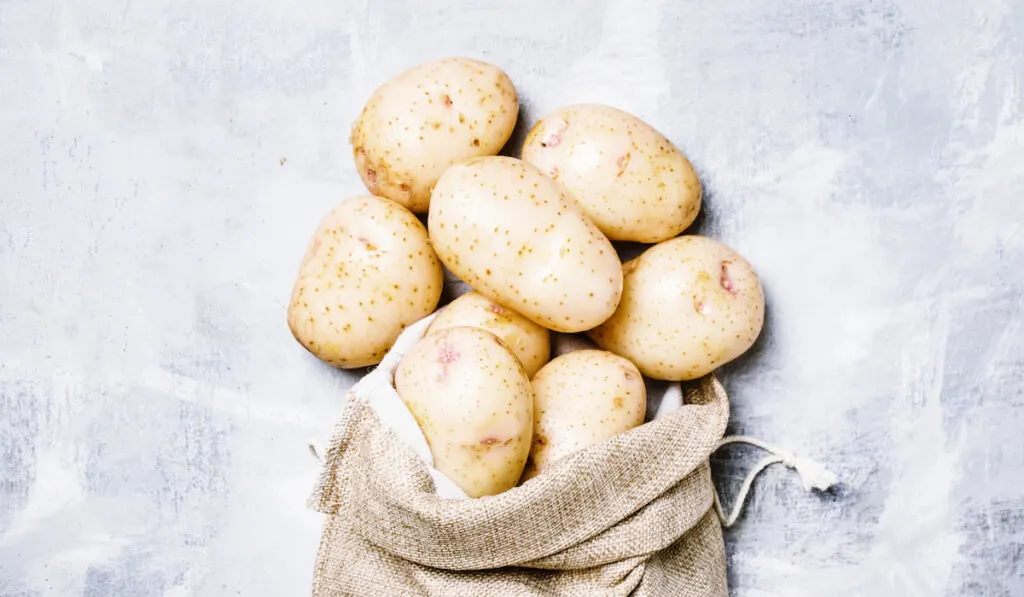
Some Final Words
Just like with humans, sheep need to have a well-monitored diet to ensure their optimal health.
If your animals don’t have a good dietary plan, they are more likely to get diseases and experience health issues.
That part also increases veterinary costs which is why you should definitely consider adding certain supplements such as the fruits mentioned above.
Whatever treat you decide to give to your sheep, make sure to feed it with one type of treat per day.
That way, you’ll avoid potential complications and ensure your sheep have a well-balanced diet.
Sources:
- https://www.spca.nz/advice-and-welfare/article/feeding-sheep-the-right-diet
- https://www.argylebutchers.com/wp-content/wiki/dac7b1-can-sheep-eat-bananas
- https://agricsite.com/can-sheep-eat-apples/
- https://agricsite.com/can-sheep-eat-fruits/
- https://www.tractorsupply.com/tsc/cms/life-out-here/the-barn/animal-medication-for-goats/feeding-sheep-lamb
- https://opensanctuary.org/article/daily-diet-treats-supplements-for-sheep/
- https://www.sciencedirect.com/science/article/abs/pii/S0921448803002955
- https://www.accidentalsmallholder.net/forum/index.php?topic=107629.0
- https://www.healthline.com/nutrition/foods/bananas#
- https://farmdesire.com/can-sheep-eat-grapes/#Can_sheep_eat_grapes
- http://urbinavinos.blogspot.com/2015/06/sheep-eat-leaves-exposing-grapes-in-to.html
- https://morningchores.com/feeding-sheep/

Pam Baker
Monday 25th of April 2022
Can sheep eat quince prunings